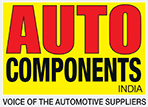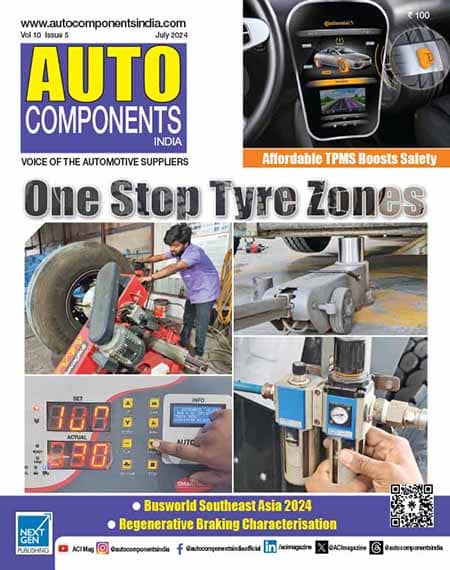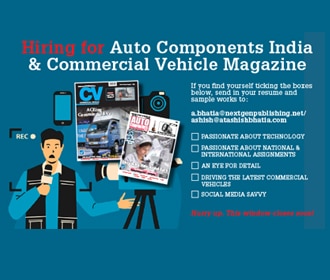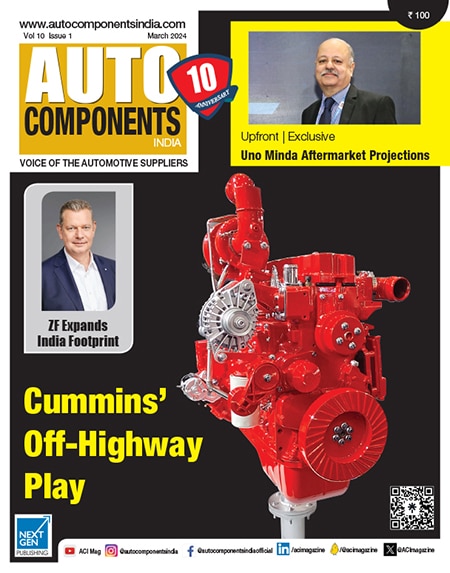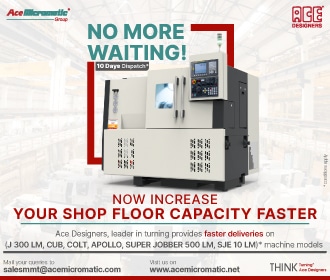Story by: Bhargav TS
Automobile aftermarket is rapidly progressing and is getting technologically sophisticated and complex. Changes in safety system technologies and emission control regulations offer new opportunities. Market demands and dynamics also drive significant changes even in the aftermarket business. Transformation in the aftermarket is much more today than what it was in the past. Each vehicle segment, commercial vehicles, passenger cars or two-wheeler, is unique with its own distribution characteristics, service and maintenance requirements and varied customer expectations.
The unorganised workshop segments today cannot operate on advanced systems in conventional ways. Bosch is catering to each of these vehicle segments with the right products in its portfolio, diagnostic solutions (hardware and software) and workshop service concepts. “With innovative and optimised solutions, we support customers at all levels of distribution according to specific needs. Yet, much of the success will depend on how we can achieve seamless integration within our value-chain, right from mechanics moving up to retailers, workshop owners or distributors,” Anjan Kumar R, Regional President, Automotive Aftermarket, Bosch Limited, India, told Auto Components India.
With the constant introduction of new norms, the need for enhanced and new technology is on the rise. The new technologies make product lifecycle much shorter than the manufacturers have been traditionally used to. Their success, therefore, largely depends on how they plan right from conceptualisation of their service concepts, identifying both the products and relevant service parts. There should also be the processes in place for introducing these products and services with better accessibility for customers in the real time.
“A big advantage of being part of a global organisation such as Bosch is that we are able to collaborate across business divisions within the organisation and draw synergies between the OE and our aftermarket offerings. We have very unique workshop formats, the Bosch Car Service and Bosch Diesel Service, to cater to both B2C and B2B customers. The former is for passenger cars service and the latter for the repair of injectors and diesel pumps. Both these formats spread across India meets the service requirements of a wide variety of bumper-to-bumper preventive maintenance as well as running repair. Our service offerings are spread to the entire range and models of cars of all manufacturers from entry segment cars to high end premium vehicles,” he said.
Kumar added that the two-wheeler workshop format has also been under progressive review to evolve according to market requirements, where multi brand 2W workshops are negligible. “We would enter the space with preventive maintenance and full service offering for the complete range of bikes, from entry segment to premium bikes, very soon.”
Many changes are happening in the two-wheeler segment as a two-wheeler today is not just a mode of transportation, but is seen as an investment, especially for fleet operators. Also with growing demand for high-end and middle segment bikes which are getting better with efficient engine management systems, safety systems such as ABS, big changes are emerging. Customers are ready to spend more for cosmetic changes and for better performance. Therefore they may be wary of taking their bike to an unorganised and unbranded roadside workshop for servicing.
Kumar said, “We are re-defining our two-wheeler workshop service strategy by closely working with Bosch OE divisions to understand the major changes that will impact the way organised sector, the OE and multi-brand service outlets, operate. Our workshop service concept will take into consideration the mega trends such as electronic fuel injection norms and safety systems and develop the right strategy along with the right parts and system diagnostics to support customers in this segment.”
Supply chain
In order to operate effectively in this changing market conditions and customer demand the supply chain of parts gains importance. As one of the biggest players in automotive segment, Bosch is working on innovative supply chain technologies for supporting customers and end consumers by ensuring an uninterrupted mobility for them. “Bosch Automotive Aftermarket is working on multiple automated replenishment and delivery models based on specific need of the customers. If we are able to connect seamlessly from the consumption point to the point of manufacturing, we see significant opportunity to optimise. Optimisation could yield up to 20% to 50% efficiency improvements in inventory and productivity in the overall supply chain based on market segment,” he said.
These technological advancements make the present day workshop businesses more expensive. They are facing major challenges from the proliferation of digitalisation and new business models and other factors. Workshops can convert these challenges into opportunities if they have the support of major players like Bosch.
Kumar said, “Our global reputation for quality and service helps our partners boost their image locally. As a business enabler, our approach is to ensure success of these outlets by having the right ecosystem in place, focusing on how to get the right pull from the workshops. This involves having accurate parts cataloguing, putting in place efficient workshop management systems, footfall management for better business continuity, workforce skill development and technological upgradation. We are working on all these pillars to provide a conducive ecosystem for our service outlets to be sustainable for long. ACI
